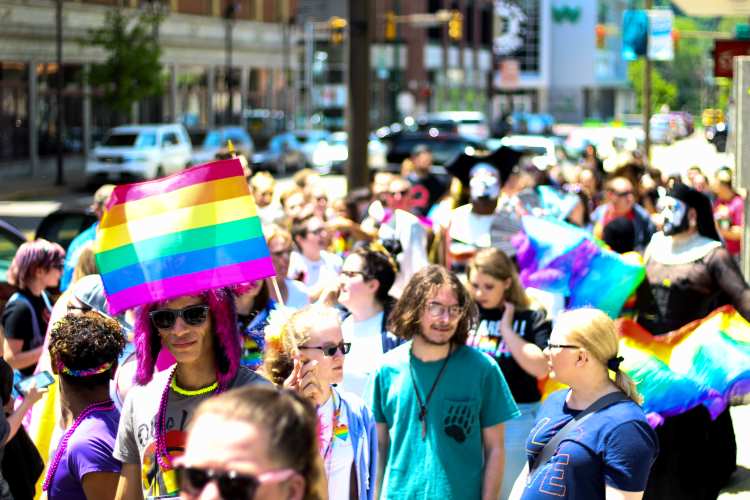
Health policies are far from meeting the needs of LGBTQ+ individuals. It is hard to take care of our health and well-being when the media, policies and society surround our needs with stigma and make us invisible in what are already broken health systems.
We saw this most recently in the response to the Mpox (previously known as monkeypox) outbreak, which caused targeted discrimination against men who have sex with men, as well as the lack of a targeted response to the COVID-19 pandemic despite available data suggesting that it disproportionately affected LGBTQ+ communities. Both outbreaks reproduced and exacerbated existing patterns of social exclusion and violence, creating a negative effect on LGBTQ+ people’s healthcare and psychological well-being.
READ I Explained: Rising number of human-elephant conflicts in Kerala
Missing data on LGBTQ+ people
Even where there is a genuine intention to understand and tackle issues that affect LGBTQ+ individuals, a key baseline is missing: data. In many contexts, LGBTQ+ people prefer to hide their sexual and reproductive health-related information to avoid risks of discrimination, violence or legal retaliation.
Health policies are far from meeting the needs of LGBTQ+ individuals. It is hard to take care of our health and well-being when the media, policies and society surround our needs with stigma and make us invisible in what are already broken health systems.
We saw this most recently in the response to the Mpox (previously known as monkeypox) outbreak, which caused targeted discrimination against men who have sex with men, as well as the lack of a targeted response to the COVID-19 pandemic despite available data suggesting that it disproportionately affected LGBTQ+ communities. Both outbreaks reproduced and exacerbated existing patterns of social exclusion and violence, creating a negative effect on LGBTQ+ people’s healthcare and psychological well-being.
Even where there is a genuine intention to understand and tackle issues that affect LGBTQ+ individuals, a key baseline is missing: data. In many contexts, LGBTQ+ people prefer to hide their sexual and reproductive health-related information to avoid risks of discrimination, violence or legal retaliation.
According to a 2020 ILGA World report, 43 countries still have no protection for LGBTQ+ communities and 70 countries criminalize same-sex sexual activity, with some imposing the death penalty. Further, health systems constantly punish LGBTQ+ individuals simply for their identity: banning them from donating blood, not recognizing their partners for social benefits such as insurance and housing. Members of the community also face many other forms of discrimination, including misgendering and lack of access to essential health services.
When people are punished for being who they are, a cycle begins: they do not want to share their data due to fear of retaliation, and without this data, it is impossible for policymakers to understand their needs and tackle specific issues with adequate policies and targeted services. The lack of adequate policies creates an environment in which data is not shared, preventing health-related policies to be comprehensively data- and user-driven, and hence, equitable.
This is not news: data focused on LGBTQ+ people has been historically ignored, making this population largely invisible within health systems.
For instance, according to the World Health Organization, data on the recent Mpox outbreak identified a prevalence of cases among “men who have sex with men”. While this information could have been crucial in understanding the cause of the issue and designing adequate policies – including having enough supplies of vaccines – its use by some media outlets and politicians to demonize gay and bisexual men proved that stigma and discrimination emerge faster than solutions.
While data collection has started in some countries and new generations are becoming more open about gender, sexual and romantic diversity, it is particularly lacking in low- and middle-income countries where laws (and enforcement) to protect LGTBQ+ rights are more urgently needed.
With little data available, we will not achieve universal health coverage and LGBTQ+ people will continue to be left behind. We must advocate for investment in robust and resilient systems that collect health information, keeping individuals safe and protected, and decision makers accountable.
Policymakers, civil society organizations, technology companies and the communications industry need to coordinate actions to slow down the spread of misinformation and disinformation. Data must be used as evidence to improve policies, and ultimately the health and well-being of vulnerable populations.
History has shut LGBTQ+ individuals out far too many times. No one should have to prove that their health has any value. We need to call for all sectors, including young people, civil society and the media to advocate for the rights of LGBTQ+ individuals.
Policymakers must understand, through data, that the unique needs of this population require equitable attention, investment and action. It is essential that we all speak up: loudly, clearly and together.
(Mijail Santos Lujan is Team Lead, Digital Communications, PMNCH and David Imbago Jácome PMNCH Chair, Adolescent and Youth Constituency. This piece was originally published on Openly, an initiative of the Thomson Reuters Foundation dedicated to impartial coverage of LGBT+ issues from around the world.)
